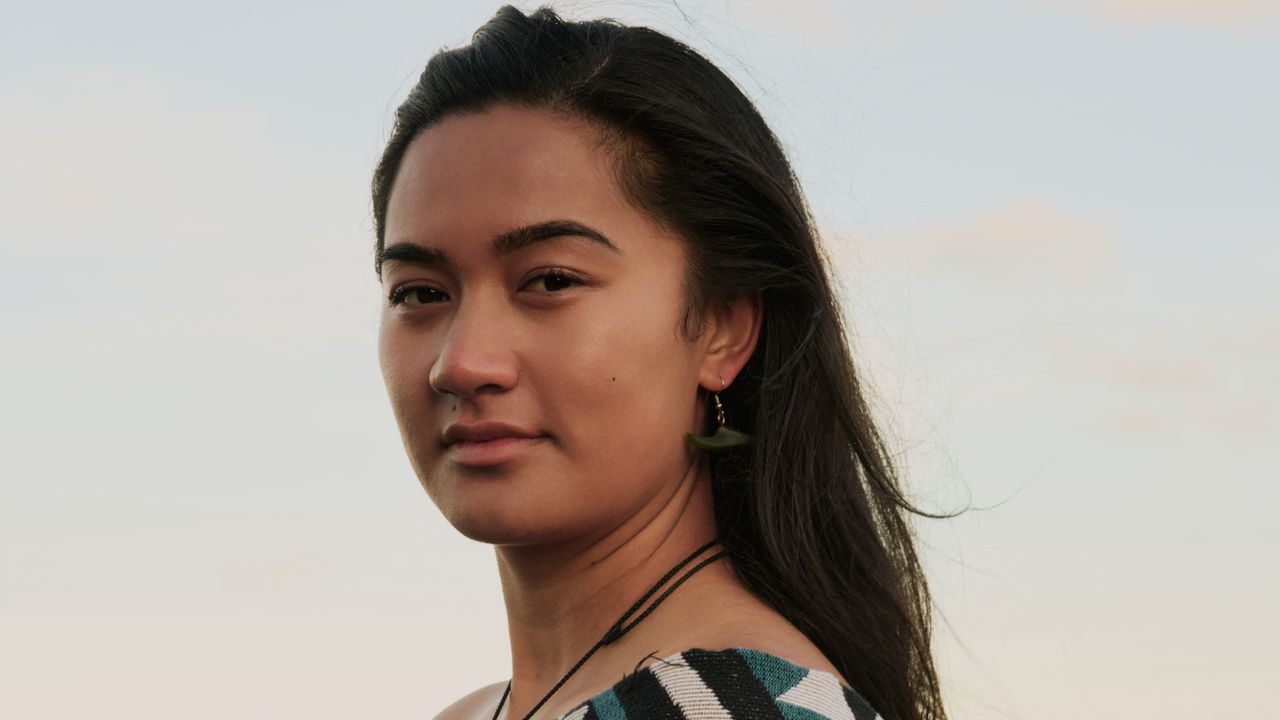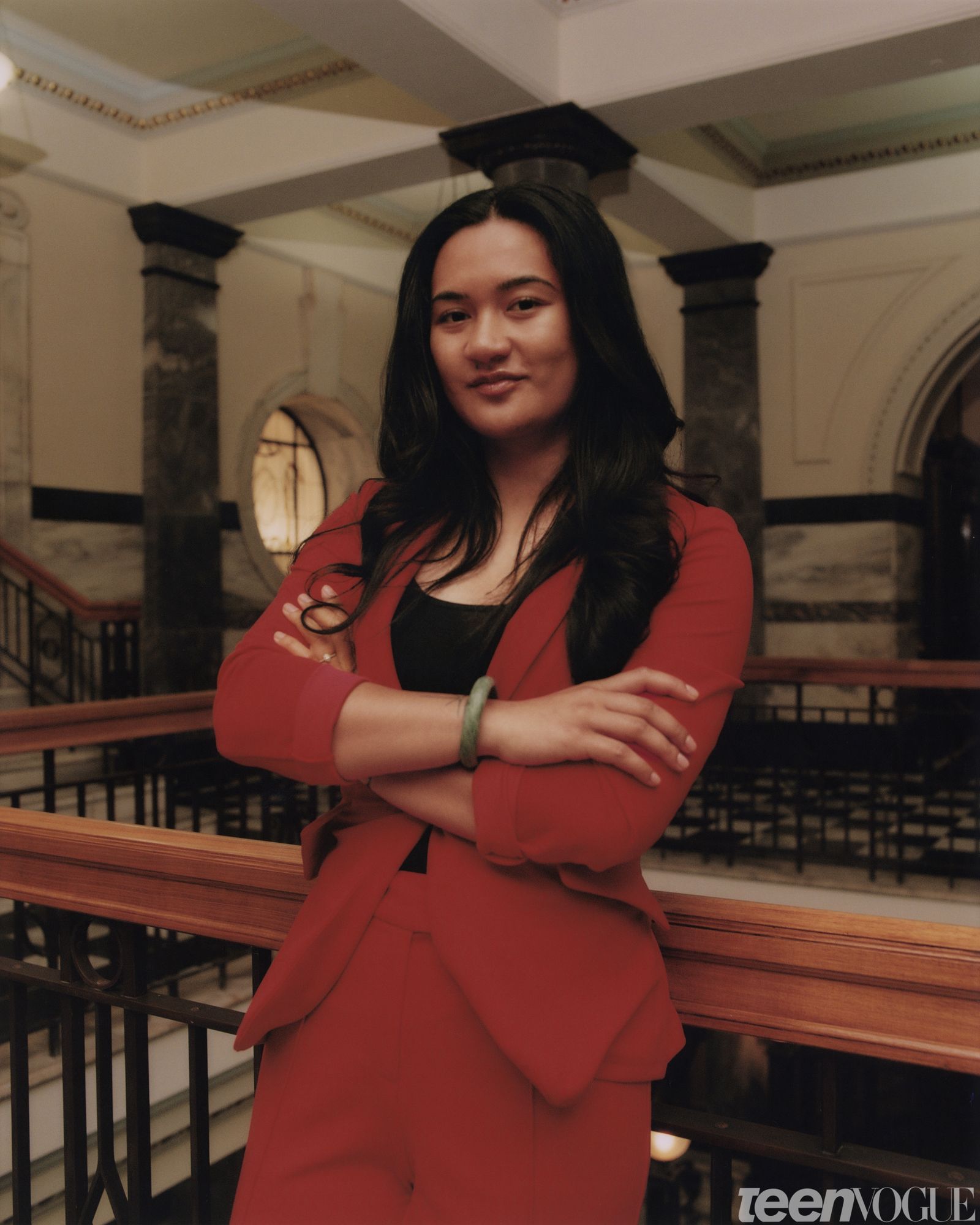“Kōhanga Reo Generation” was a clear statement to Parliament: “This place once wanted us to literally go extinct, and we have come back stronger by being one million strong who know their reo (language), their whakapapa (genealogy). That was the biggest weapon we could ever bring to them, is surviving. But actually, we’re on that level thriving for our kids.”
In February 2021, Te Pāti Māori co-leader Rawiri Waititi refused to wear a tie in Parliament, instead wearing an Aotea stone necklace. It sparked conversation about what was considered appropriate business attire, with Waititi himself asking, “Why are Pākehā (a term for European New Zealanders) making Māori dress like they want us to dress?”
This inspired Maipi-Clarke from afar. “It wasn’t a law that he changed on paper, but it was changing the minds and society,” she says. “All the time now, you will see taonga Māori, or prized possessions, represented across the board and in corporate spaces.”
Maipi-Clarke got her first real taste of the politics realm when her grandfather gave a submission regarding the creation of “Māori wards” with their local government in 2021. She explains, “Māori wards is when you have one representative who is Māori from that place to advocate on council.”
At the time, Maipi-Clarke stood up to give her Pop’s submission on his behalf, and she questioned the lack of Māori representation in front of her. “’You have Māori doing your cups of tea and your karakia, or prayer, but you don’t have Māori at the decision table,'” she recalls. “I said it at that point, ‘I’ve never experienced racism like that,’ and oh my God, I came here [to Parliament] — now I know all about it.”
When the proposal was voted down by the council, Maipi-Clarke and others blasted it across social media. She thinks the public scrutiny and pressure is what ultimately solidified the unanimous vote in favor of creating Māori wards in Hamilton.
But the future of Māori wards is again in jeopardy, due to a law introduced by the coalition government; another breach of Te Tiriti, she adds. “That’s all the conversation we’re trying to have — there’s nothing bad about us being at the decision table. It’s actually a good thing, but people think it’s a threat and [are] intimidated by it.”

